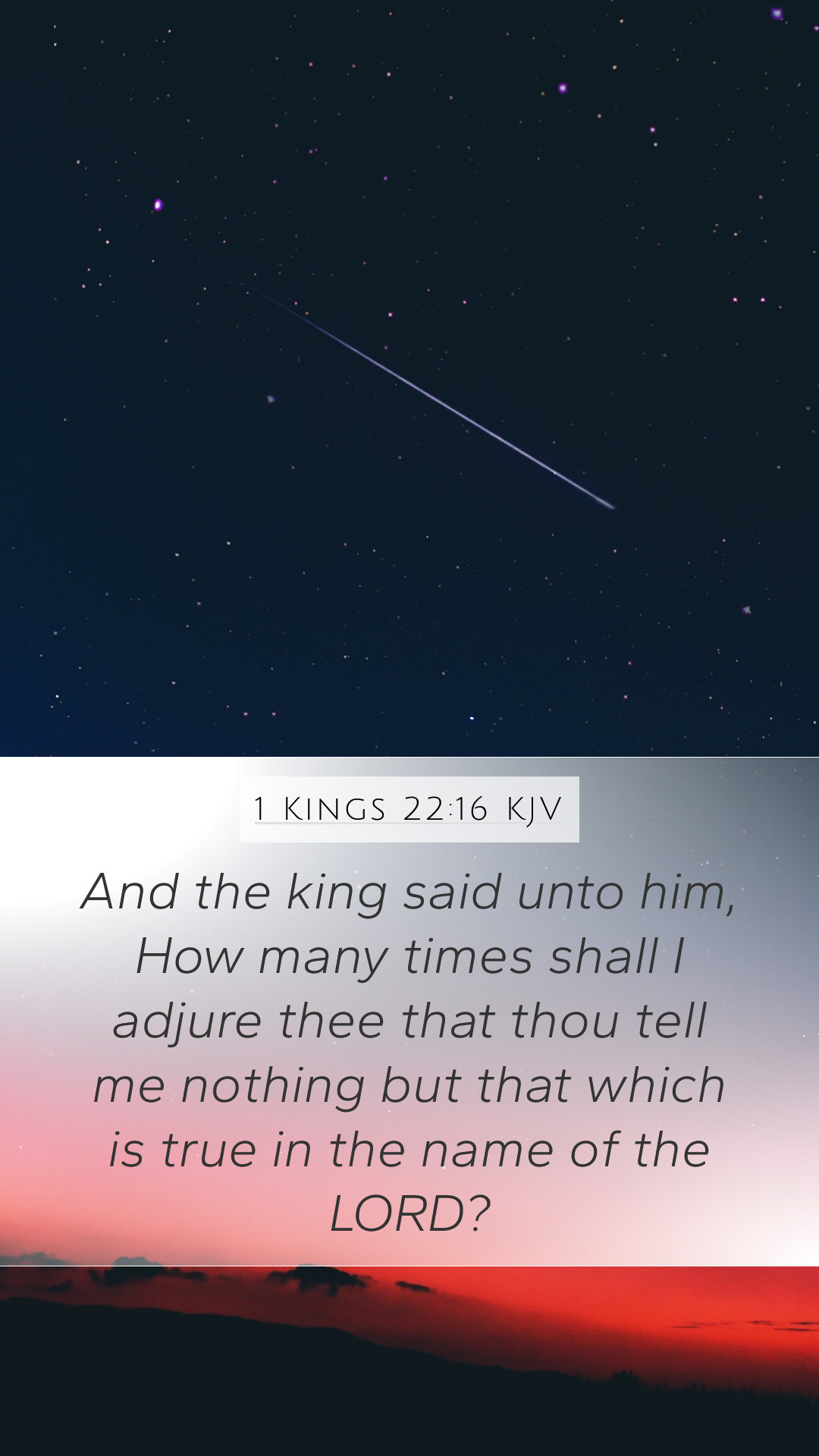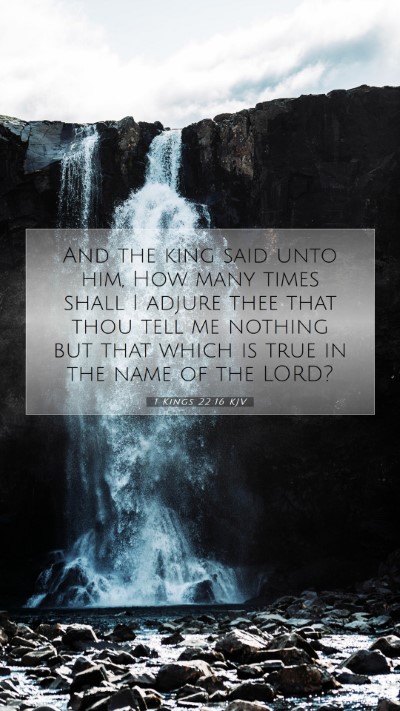Understanding 1 Kings 22:16
Bible Verse: 1 Kings 22:16
This verse presents a key moment in the narrative of King Ahab's decision-making process, where the prophet Micaiah confronts him with a message from the Lord. Understanding this passage is essential for grasping the broader themes of divine guidance and the consequences of ignoring prophetic counsel.
Overview and Context
To fully grasp the implications of this verse, it's crucial to consider the historical context: Ahab, king of Israel, seeks to go to war against Ramoth-gilead and desires confirmation of victory. He summons several prophets, but it is Micaiah who ultimately delivers the truth, but not before Ahab expresses his skepticism.
Commentary Insights
- Matthew Henry: Henry stresses the importance of truth in prophecy. He notes that Ahab's desire for flattery led him to ignore the only true word from God delivered by Micaiah. This underscores the peril of pursuing what one wants to hear rather than the truth. Micaiah's response reveals both the gravity of Ahab’s situation and the overarching sovereignty of God over life and death.
- Albert Barnes: Barnes emphasizes the conflict between worldly wisdom and divine revelation. He argues that Ahab’s dismissal of Micaiah's warnings illustrates the consequences of rejecting God's guidance. This refusal not only foreshadows Ahab’s downfall but also serves as a cautionary lesson for believers regarding the importance of heeding divine instructions over human reasoning and desires.
- Adam Clarke: Clarke provides an analysis of the character of the prophets and the moral decline of Israel during Ahab’s reign. He suggests that Micaiah’s courage to speak truthfully in the face of opposition demonstrates his fidelity to God, contrasting sharply with the other prophets who were more concerned with maintaining their positions than delivering God’s word. Clarke urges readers to reflect on their own responses to divine messages.
Thematic Analysis
The themes illuminated in 1 Kings 22:16 extend beyond the immediate narrative:
- Divine Sovereignty: This episode emphasizes God’s control over the events of human history, signaling that ultimately His will prevails, regardless of human intentions or desires.
- Discernment in Prophecy: The narrative invites us to consider the sources of guidance we pursue in life. It encourages a discerning heart that seeks truth rather than comfort.
- Consequences of Rejection: Ahab’s tragic end, stemming from his willingness to reject the truth, serves as a reminder of the real-world dangers associated with ignoring divine wisdom.
Application for Modern Believers
For today's readers, 1 Kings 22:16 prompts serious self-reflection:
- How do we respond when confronted with uncomfortable truths in our spiritual walk?
- Do we seek out voices that align with our desires rather than those that challenge or stretch us?
- How can we better align ourselves with God’s will, similar to Micaiah, who remained steadfast in his obedience?
Cross References
- 1 Kings 18:17-18: The confrontation between Elijah and Ahab, which sets the stage for understanding Ahab's complex character.
- Jeremiah 23:16: A warning against false prophets and the importance of genuine prophetic messages.
- 2 Chronicles 18:12-16: A parallel account of Micaiah's prophecy and Ahab's reaction, offering additional insights into the narrative.
Conclusion
Through the careful study of 1 Kings 22:16, we glean valuable insights into the nature of prophecy, the importance of truth, and the divine will that governs our decisions. This verse serves as a potent reminder, challenging believers to seek understanding and guidance that aligns with God’s purposes. Engaging with public domain commentaries enhances our Bible study insights, helping us to deeply reflect on meaning of Bible verses and how they apply to our daily lives.


